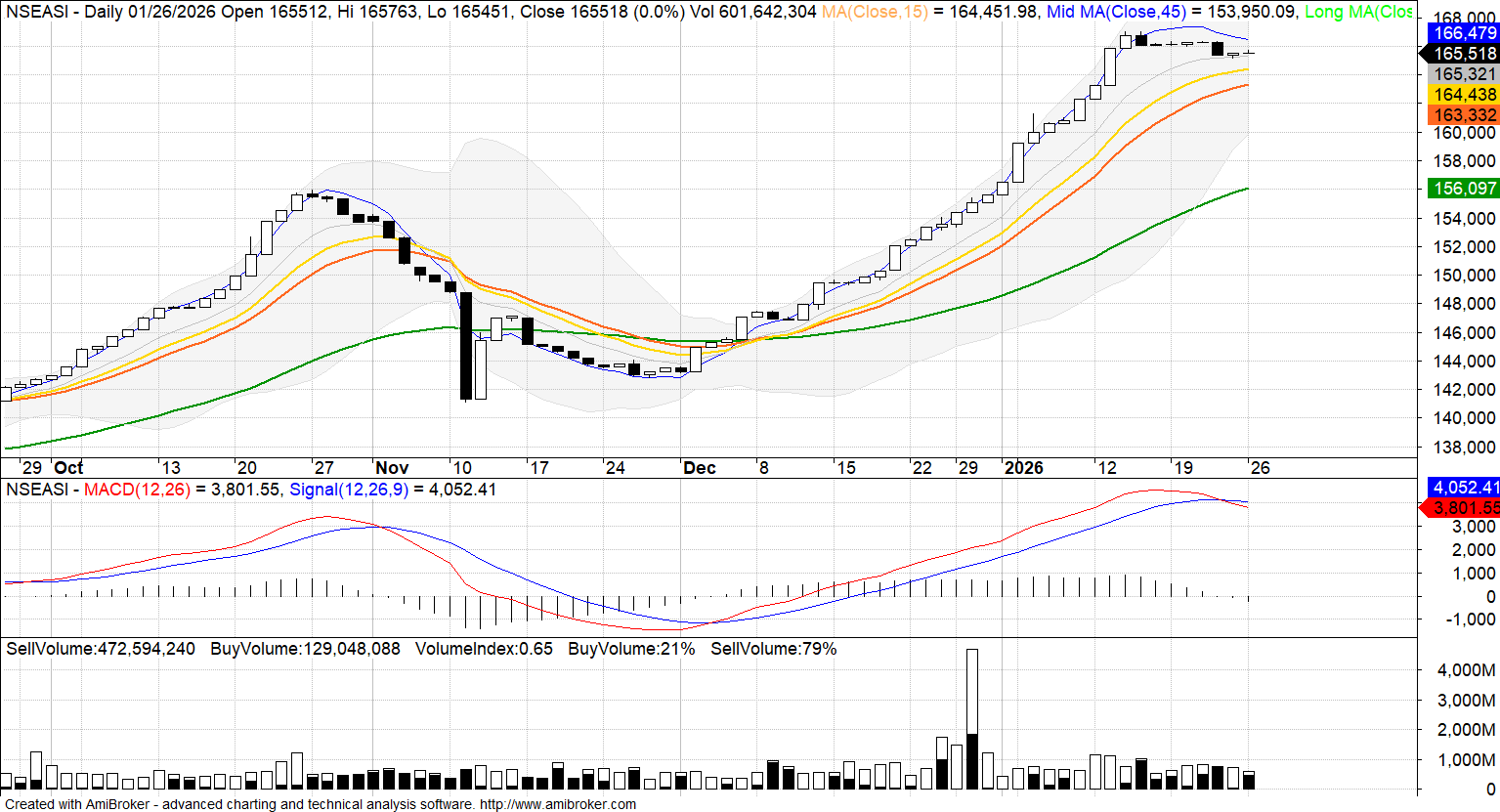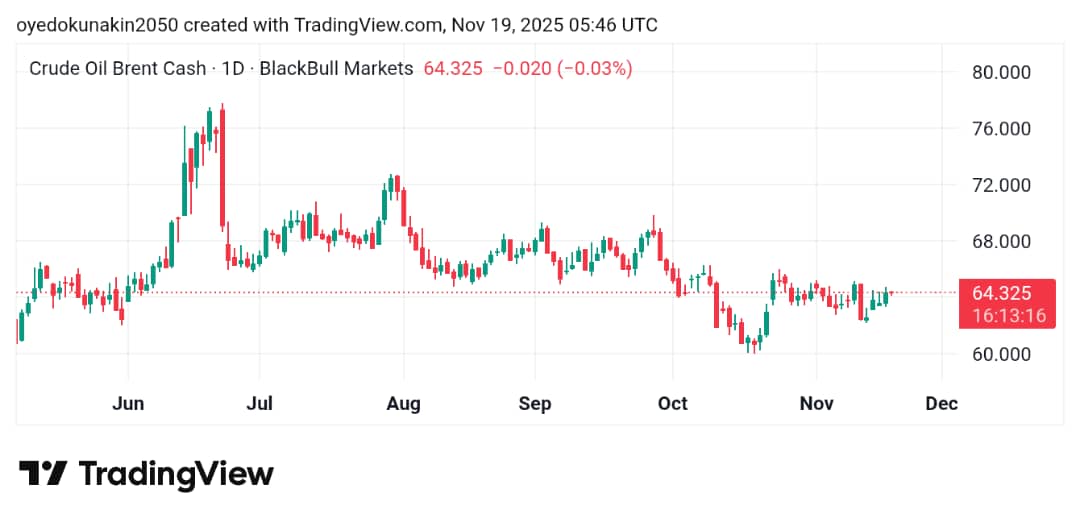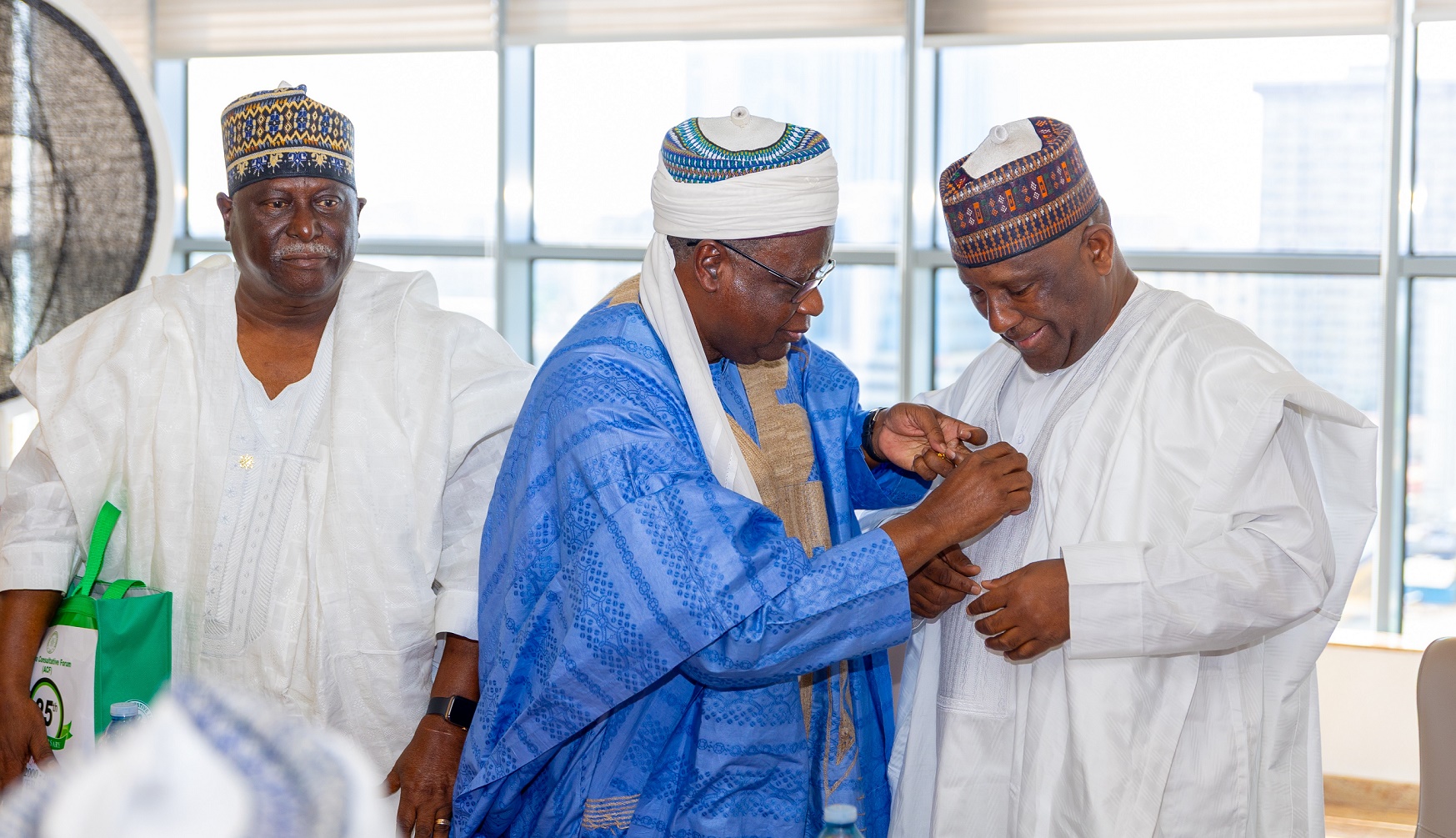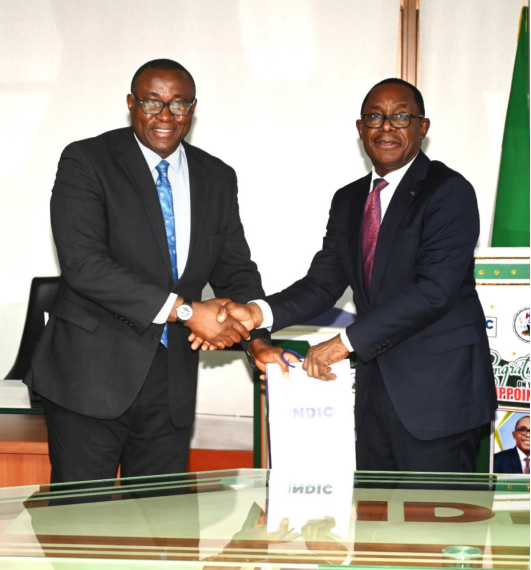
The Group Chief Executive Officer, Nigerian Exchange Group Plc, Oscar Onyema, says the Chartered Institute of Directors, Nigeria (CIoD) can play a crucial role in promoting and shaping governance and leadership in the country.
Delivering a keynote address at the Investiture of Alhaji Tijani Borodo as the 18th President and Chairman, Governing Council, CIoD Nigeria, in Lagos on Thursday, Onyema noted that the institute founded 40 years ago, is the premier corporate governance and leadership development body, due to the huge impact it has had on the leadership of many organizations in the country.
Onyema noted that the recently enacted Chartered Institute of Directors, Nigeria (Establishment) Act, 2023, provides a legal framework that strengthens the institute’s authority and expands its responsibilities.
This, he said, brings both challenges and opportunities for the organization.
According to him, with the new legal powers and the increased focus on transparency and governance, the CIoD Nigeria can play a pivotal role in driving improvements in board composition, disclosure, and evaluation practices among its charter holders and this will enhance corporate performance and reputation.
He said the growing importance of Environmental, Social, and Governance (ESG) issues provides an opportunity for the institute to guide its charter holders while addressing these concerns.
“As sustainability standards become more prevalent, the CIoD Nigeria can help companies adapt and meet disclosure requirements. With its established reputation, the institute can advocate for policies and practices that foster growth and innovation, aligning with broader national and global governance trends,” he stressed.
Speaking on the challenges the institute might face, the NGX Group CEO, pointed out that under the new Act, the CIoD Nigeria is required to establish branches in each state capital, relocate its headquarters to Abuja, and manage zonal offices in multiple locations. He said that expansion poses logistical and operational challenges, including staffing, infrastructure, and financial resources.
He added that while the Act mentions potential sources of funding like subscriptions, penalties, and donations, ensuring sustainable funding to support the institute’s growth and operations will be a significant challenge as developing a robust financial strategy is essential.
Congratulating the institute on its 40th anniversary and Borodo on his investiture and swearing in as the 18th President and Chairman of the Governing Council of the Institute, Onyema urged the newly elected President to ensure his strategic agenda will be built review, reform and reinvigoration.
Borodo, a lawyer with over 30 years of experience in both the public and private sectors, holds an LLB from Ahmadu Bello University Zaria, a BL from the Nigerian Law School, Lagos, and an LLM from the University of Essex, United Kingdom.
A member of the International Bar Association (IBA), the Nigerian Bar Association (NBA), Honorary Senior Member, Chartered Institute of Bankers (HCIB), and Fellow, Institute of Directors, Nigeria (FIoD), he held directorship positions spanning over two decades on the boards of First Dependants Nigeria Limited, First Nominees Nigeria Limited, and First Registrars Nigeria Limited.
His professional career began at the Ministry of Justice, Kano in 1979, where he rose from pupil state counsel to the Director of Public Prosecutions in 1988, before joining the services of First Bank of Nigeria Limited in late 1988 where he was for 24 years, during which he was Company Secretary until he was appointed the pioneer Company Secretary of FBN Holdings Plc in June 2013.












